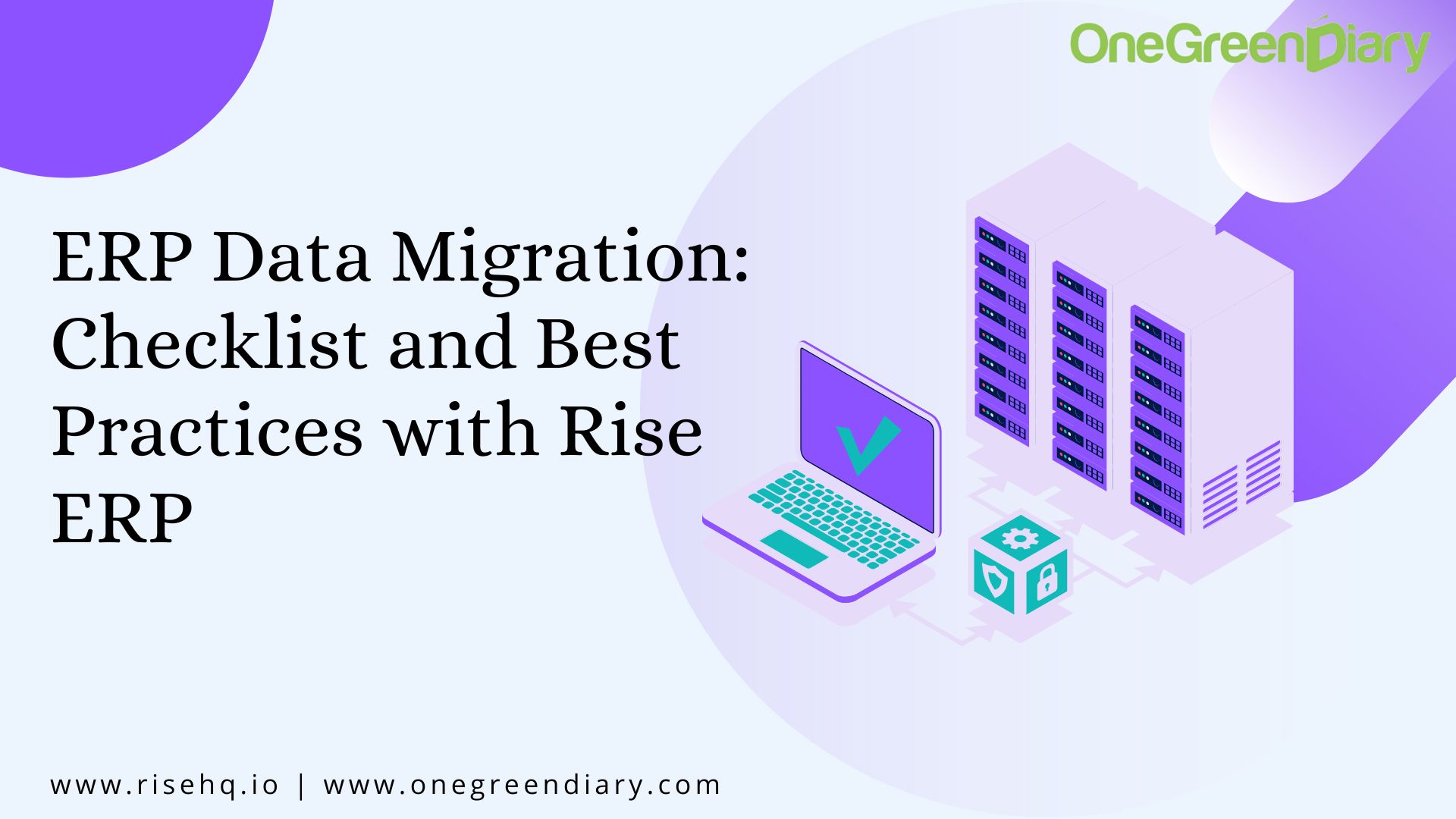Data plays a crucial role in every business’s smooth operation. When transitioning from traditional on-premise ERP systems to cloud-based AI-powered ERP software like Rise ERP, data migration becomes a pivotal task. It requires careful planning and execution to ensure success. With Rise ERP, businesses can benefit from efficient data migration services, handled by expert professionals, to ensure all vital data is smoothly transferred into the new system.
What is ERP Data Migration?
ERP data migration involves moving all essential business data from various sources into the centralized Rise ERP system. This includes integrating data from departments like finance, production, and HR into a single platform. The process consists of extracting, cleansing, transforming, and importing data for accurate and seamless functionality within the ERP system.
Why Data Migration is Crucial for Implementing Rise ERP Solutions?
- Preservation of Business History: Business owners need access to previous data even after ERP implementation. Rise ERP ensures the smooth migration of historical data.
- Boost in Efficiency: Proper data migration enables businesses to operate on a unified platform, enhancing overall efficiency.
- Strategic Insights: Migrating crucial data into Rise ERP allows enterprises to leverage past records for informed decision-making and future growth.
Key Considerations for ERP Data Migration
- Building the Right Team: A dedicated team from different departments, including finance, IT, and operations, ensures a smooth transition.
- Effective Planning: A well-defined migration plan is crucial for executing ERP data migration without disruptions.
- Data Accuracy: Rise ERP focuses on accurate and safe data transfer, ensuring compliance with industry standards.
- Data Cleansing: Eliminate corrupted and outdated data to ensure only relevant information is migrated.
- Mapping and Compliance: Map existing data to the new system while ensuring adherence to regulatory standards.
- Training and Backup: Training employees on the new system and keeping data backups are essential steps.
Best Practices for ERP Data Migration
- Prioritize Data: Focus on migrating the most essential data first to minimize disruptions.
- Analyze Data for Adaptability: Ensure the transferred data integrates seamlessly with the new Rise ERP system.
- Select Wisely: Avoid migrating outdated or irrelevant data to maintain the integrity of the new system.
- Avoid Delays: Timely data migration is crucial to avoid slowing down the ERP implementation process.
Conclusion
Data migration is a critical step in implementing Rise ERP. Businesses must carefully plan and execute the process, ensuring teamwork across departments, accurate data mapping, and adherence to best practices. Rise ERP offers expert data migration services that ensure businesses are equipped with the tools they need to streamline operations and maintain efficiency in the new system.

